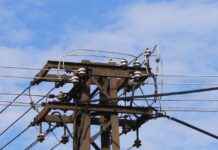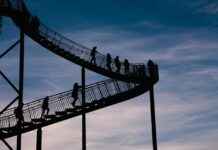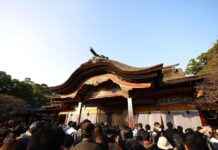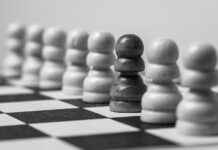This article delves into Eren Yeager’s character evolution in Attack on Titan, analyzing the pivotal moments that led to his shocking transformation and its profound impact on both fans and the storyline.
The Evolution of Eren Yeager
Eren Yeager’s journey is one of the most compelling arcs in anime history. From a passionate youth yearning for freedom to a complex anti-hero, his character development is central to the narrative. Initially driven by a desire to eliminate the Titans, Eren’s motivations shift dramatically as he faces the harsh realities of the world around him. Key events in his life, such as the loss of loved ones and the discovery of his Titan powers, shape his worldview and ultimately lead him down a darker path.
Key Moments in Eren’s Transformation
- The Fall of Shiganshina: This catastrophic event ignites Eren’s quest for revenge. The destruction of his hometown not only fuels his rage but also catalyzes his transformation into a more ruthless character.
- Eren’s Rage and Determination: Eren’s emotional turmoil following Shiganshina’s fall showcases his intense drive. This rage propels him to take drastic actions that redefine his relationships and alliances.
- The Discovery of His Titan Powers: Uncovering his unique abilities introduces a new layer to Eren’s character. These powers challenge his perception of freedom and responsibility, forcing him to confront the moral implications of his actions.
Fan Reactions to Eren’s Transformation
The transformation of Eren Yeager has sparked a diverse range of reactions among fans. Some view his drastic choices as a necessary evil for the greater good, arguing that his actions, though controversial, are justified in the face of overwhelming threats. Conversely, critics highlight the moral ambiguity of his decisions, raising concerns about the ethical implications of his transformation and its impact on those around him.
In conclusion, Eren Yeager’s evolution from a hopeful youth to a complex anti-hero is a testament to the intricate storytelling in Attack on Titan. His transformation not only captivates audiences but also invites them to reflect on the nature of freedom, morality, and the consequences of one’s choices.

The Evolution of Eren Yeager
Eren Yeager’s journey in Attack on Titan is not just a tale of survival; it is a profound exploration of human emotions, motivations, and the moral complexities of choice. From the outset, Eren is portrayed as a passionate youth, driven by a desire to eradicate the Titans and protect his loved ones. However, as the narrative unfolds, his character evolves into a multifaceted anti-hero, challenging the very definitions of right and wrong.
Initially, Eren’s motivations are straightforward. The brutal loss of his mother during the Titan invasion ignites a fierce determination within him. This tragedy serves as the catalyst for his quest for vengeance, pushing him to join the Survey Corps. Throughout the series, Eren’s experiences shape his worldview, leading him to confront the harsh realities of conflict and the consequences of his actions.
One of the pivotal moments in Eren’s transformation occurs during the fall of Shiganshina. This event not only solidifies his desire for revenge but also introduces him to the complexities of leadership and sacrifice. Eren’s emotional turmoil is palpable, as he grapples with feelings of helplessness and rage. These emotions ultimately drive him to make decisions that blur the lines between heroism and villainy.
As Eren discovers his Titan powers, his character deepens further. The newfound abilities grant him a sense of freedom, yet they also burden him with the weight of responsibility. This duality is crucial in understanding Eren’s transformation, as he begins to question the true meaning of liberation and the ethical implications of his choices.
In conclusion, Eren Yeager’s evolution from a determined youth to a complex anti-hero is a central theme in Attack on Titan. His journey is marked by pivotal moments that challenge his motivations and relationships, ultimately reshaping him into a character that resonates deeply with fans. The exploration of his transformation invites viewers to reflect on the nature of humanity and the moral dilemmas that arise in the face of adversity.

Key Moments in Eren’s Transformation
Eren Yeager’s transformation in Attack on Titan is not just a narrative twist; it is a profound evolution shaped by several pivotal moments. Each event serves as a catalyst that alters his motivations, relationships, and ultimately, his identity. This section delves into these critical events and their implications for Eren’s character development.
- The Fall of Shiganshina: This catastrophic event marks the beginning of Eren’s journey into darkness. Witnessing the destruction of his hometown and the loss of loved ones ignites an insatiable thirst for revenge. It is here that Eren’s desire to eradicate Titans is born, setting the stage for his transformation into a more complex character.
- The Revelation of His Titan Powers: Eren’s discovery of his ability to transform into a Titan adds layers to his character. Initially seen as a gift, these powers come with immense responsibility. As he grapples with the implications of his abilities, Eren’s perspective on freedom and the weight of his choices evolves, complicating his motivations.
- Confrontation with the Marleyans: Eren’s decision to infiltrate Marley and confront his enemies signifies a shift from a reactive to a proactive stance. This moment showcases his willingness to take drastic measures, revealing a more ruthless side that shocks both his allies and enemies alike.
- The Betrayal of His Friends: As Eren’s ideology becomes increasingly radical, his relationships with his friends begin to fracture. His willingness to sacrifice those close to him for what he perceives as the greater good raises ethical questions about loyalty and morality, deepening the complexity of his character.
In summary, these key moments not only shape Eren’s transformation but also serve as critical turning points that challenge the audience’s perceptions of heroism and villainy. His evolution reflects the series’ overarching themes of freedom, sacrifice, and the moral ambiguity of war.
The Fall of Shiganshina
is a pivotal moment in the anime series Attack on Titan, marking a significant turning point in the life of Eren Yeager. This event not only catalyzes his transformation from a hopeful young man into a driven individual seeking vengeance, but it also profoundly shapes his worldview and relationships with those around him.
The destruction of Shiganshina represents the loss of Eren’s childhood and innocence. As he witnesses the brutal slaughter of his friends and family, a fire ignites within him, fueling his desire for revenge against the Titans. This moment is crucial as it lays the foundation for Eren’s complex character arc, transitioning him from a mere soldier into a figure of moral ambiguity.
- Rage and Determination: Eren’s emotional response to the devastation showcases his intense rage and unwavering determination. These feelings drive him to join the Survey Corps, where he vows to eradicate the Titans.
- Impact on Relationships: The fall of Shiganshina also creates tension among Eren and his friends. His single-minded pursuit of vengeance leads to conflicts with characters like Mikasa and Armin, who struggle to understand his drastic changes.
As the series progresses, Eren’s transformation becomes even more complex. His discovery of Titan powers introduces new layers to his character, altering his perception of freedom and responsibility. The once clear-cut battle between humans and Titans becomes muddled with ethical dilemmas, pushing Eren further down a path of moral ambiguity.
In conclusion, the fall of Shiganshina is not just a tragic event but a significant catalyst for Eren Yeager’s transformation. It sets him on a path filled with challenges, conflicts, and moral questions, ultimately shaping the narrative of Attack on Titan and leaving a lasting impact on its audience.
Eren’s Rage and Determination
Eren Yeager’s journey is marked by profound emotional turmoil, particularly following the catastrophic destruction of his hometown, Shiganshina. This pivotal moment not only ignites a fierce rage within him but also solidifies his determination to challenge the oppressive forces that have plagued humanity. Eren’s emotional response is a complex interplay of grief, anger, and a burning desire for vengeance, which propels him into a path of relentless pursuit of freedom.
In the aftermath of the attack, Eren’s rage becomes a driving force behind his actions. This intense anger is not merely a reaction to loss; it transforms into a powerful motivation that shapes his character. He vows to eradicate the Titans, viewing them as the embodiment of his suffering. This commitment to revenge is not just personal; it reflects a broader desire to protect his loved ones and ensure that no one else experiences the same pain he has endured.
The emotional weight of Eren’s experiences also leads him to confront the harsh realities of his world. His determination pushes him to make difficult choices, often blurring the line between right and wrong. As he grapples with the consequences of his actions, Eren’s character evolves from a naive boy into a complex anti-hero, embodying the struggles between justice and vengeance.
Furthermore, Eren’s rage and determination have significant implications for his relationships. His friends and allies begin to question his methods and motivations, leading to tension and conflict within their ranks. This shift not only affects their dynamics but also highlights the isolation that can accompany such intense emotions.
In conclusion, Eren Yeager’s emotional response to the destruction of Shiganshina is a crucial element of his transformation. His rage and determination serve as catalysts for his actions, driving him toward a path that challenges the very fabric of his humanity. As fans witness this evolution, they are left to ponder the complexities of Eren’s character, making him one of the most compelling figures in Attack on Titan.
Impact on Relationships
Eren Yeager’s transformation in Attack on Titan does not merely alter his personal journey; it profoundly impacts his relationships with friends and family. As he evolves into a more complex character, the dynamics within his social circle shift dramatically, leading to increased tension and conflict.
Initially, Eren’s friends, including Mikasa and Armin, share a strong bond rooted in mutual goals and experiences. However, as Eren embraces his new identity and the moral ambiguities that accompany it, this bond begins to fray. The following points illustrate how Eren’s transformation affects his relationships:
- Increased Isolation: Eren’s radical decisions alienate him from his closest allies. His friends struggle to reconcile the Eren they once knew with the person he has become, leading to feelings of betrayal.
- Conflicting Ideologies: As Eren’s worldview shifts, so does his approach to achieving freedom. This divergence in beliefs creates friction, especially with characters like Armin, who advocate for a more diplomatic resolution.
- Family Ties: Eren’s relationship with his family, particularly with his mother and father, is complicated by his transformation. His choices often reflect a stark departure from the values instilled in him during his upbringing, causing emotional turmoil.
- Trust Issues: Eren’s newfound powers and the secrets he harbors lead to a breakdown of trust among his friends. They find it increasingly challenging to understand his motives, which creates a rift that is difficult to mend.
In conclusion, Eren Yeager’s transformation is a catalyst for conflict within his relationships. The tension that arises from his evolving identity not only shapes the narrative of Attack on Titan but also serves as a poignant reminder of how personal growth can impact the bonds we hold dear. As fans, we are left to ponder the complexities of loyalty, trust, and the price of freedom.
The Discovery of His Titan Powers
Eren Yeager’s journey in Attack on Titan takes a dramatic turn with the revelation of his Titan powers, adding significant layers to his character. This newfound ability not only enhances his physical capabilities but also profoundly impacts his perception of freedom and responsibility.
Initially, Eren views his Titan powers as a means to fight back against the oppressive forces that threaten humanity. This sense of empowerment ignites a fierce desire for freedom, driving him to push boundaries and challenge the status quo. However, as he grapples with the implications of his abilities, Eren’s understanding of freedom becomes increasingly complex. He realizes that true freedom comes with heavy responsibilities, not just for himself but for those around him.
As Eren navigates this duality, he faces moral dilemmas that force him to reconsider his motivations. His Titan powers grant him the ability to protect his friends and family, yet they also bring about devastating consequences. This conflict is evident in his relationships; he becomes more isolated, as his friends struggle to reconcile their admiration for his strength with the fear of what he might become.
Furthermore, Eren’s transformation leads him to question the very nature of freedom. Is it merely the absence of chains, or does it involve the choices one makes, even when they come at a cost? This philosophical inquiry deepens Eren’s character, making him a more relatable and tragic figure.
In conclusion, Eren Yeager’s discovery of his Titan powers is a pivotal moment in Attack on Titan that reshapes his identity. It challenges him to confront the intricate balance between freedom and responsibility, ultimately making his journey one of profound complexity and emotional depth.

Fan Reactions to Eren’s Transformation
Eren Yeager’s transformation in “Attack on Titan” has undoubtedly stirred a whirlwind of emotions and discussions among fans. As the series progressed, Eren’s character evolved from a passionate young man seeking freedom to a complex figure whose actions sparked debates about morality, justice, and sacrifice. This section delves into the varied fan reactions to his transformation, highlighting both support and criticism.
- Supporters of Eren’s Choices: A significant segment of the fanbase views Eren’s drastic decisions as a necessary evil. They argue that his actions, though controversial, are aimed at achieving a greater good. Many fans resonate with his struggle against oppression and his desire to protect his people, seeing him as a tragic hero forced to make difficult choices in a world filled with despair.
- Critics of Eren’s Actions: On the flip side, there are fans who vehemently oppose Eren’s methods. They argue that his transformation into an anti-hero undermines the moral foundations established earlier in the series. Critics express concerns over the ethical implications of his choices, questioning whether the ends truly justify the means. This group often reflects on the consequences of Eren’s actions on his relationships and the broader narrative.
Moreover, fan theories have proliferated, with many attempting to decode Eren’s motivations and predict his next moves. Some believe that his actions are a reflection of the cyclical nature of violence and the inevitable consequences of war, while others speculate that he may have a hidden agenda that could reshape the future of his world.
In conclusion, Eren Yeager’s transformation is a focal point of intense debate within the “Attack on Titan” community. Whether viewed as a hero or a villain, his journey raises profound questions about the nature of freedom, sacrifice, and the moral dilemmas faced in times of conflict. As fans continue to dissect his character arc, it becomes clear that Eren’s evolution is not just a personal journey but a mirror reflecting the complexities of human nature itself.
Supporters of Eren’s Choices
In the world of Attack on Titan, Eren Yeager’s transformation has sparked intense debate among fans. A significant faction of the fanbase supports Eren’s drastic choices, viewing them as essential for the greater good. This perspective is rooted in a complex understanding of his motivations and the dire circumstances surrounding his actions.
Many supporters argue that Eren’s decisions are driven by a profound sense of urgency and a desire to protect his loved ones. They point to the oppressive circumstances faced by the people of Paradis Island, where survival often necessitates extreme measures. Eren’s willingness to embrace a darker path is seen as a necessary evil in the fight against overwhelming threats.
- Survival Instincts: Fans argue that Eren’s choices stem from a primal need to survive. The world he inhabits is fraught with dangers, and his drastic actions reflect a realistic response to such peril.
- Greater Good: Supporters claim that Eren’s willingness to sacrifice his morality for the sake of achieving peace highlights his commitment to a greater cause. They believe that his actions, while controversial, are ultimately aimed at securing a future free from the cycle of violence.
- Character Growth: Many fans appreciate Eren’s evolution from a naive child to a complex anti-hero. This transformation is seen as a natural progression influenced by the traumatic events he has endured.
Moreover, Eren’s choices resonate with those who feel disillusioned by the status quo. His actions challenge traditional notions of heroism and morality, prompting fans to reflect on the nature of good and evil. By embracing a more nuanced perspective, supporters argue that Eren embodies the struggle of individuals faced with impossible choices.
In conclusion, while Eren Yeager’s actions may appear extreme, many fans view them as a reflection of the harsh realities of his world. His transformation ignites discussions about morality, sacrifice, and the lengths one must go to in the pursuit of freedom and peace.
Critics of Eren’s Actions
In the realm of Attack on Titan, Eren Yeager’s transformation has not only captivated audiences but also sparked intense debate among fans. While many support his drastic choices, a significant faction of viewers raises concerns about the morality of his methods. This section delves into the criticisms surrounding Eren’s actions and the ethical implications they carry.
One of the primary criticisms revolves around the use of violence as a means to achieve his goals. Critics argue that Eren’s willingness to resort to extreme measures, including mass destruction and loss of innocent lives, raises profound moral questions. They contend that his actions, while driven by a desire for freedom, often blur the lines between heroism and villainy.
Furthermore, the transformation of Eren from a passionate youth into a figure willing to sacrifice others for his vision of peace is alarming to many. This shift in character not only affects his relationships with friends and family but also challenges the audience’s perception of what it means to be a hero. Critics emphasize that true heroism should not come at the expense of others’ lives, and Eren’s choices contradict this ideal.
Additionally, some fans express concern about the narrative implications of Eren’s actions. They argue that portraying such morally ambiguous decisions could send a troubling message to viewers, particularly younger audiences. The fear is that it may normalize violence as a solution to conflicts, overshadowing the importance of dialogue and understanding.
In conclusion, while Eren Yeager’s journey is undeniably compelling, the criticisms of his actions highlight the complex moral landscape within Attack on Titan. As viewers grapple with these ethical dilemmas, the series prompts a deeper reflection on the nature of freedom, sacrifice, and what it truly means to fight for a cause.



























































